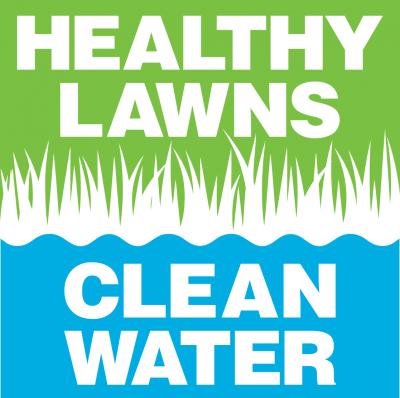Think Blue: Lawn Care
Excess lawn chemicals like fertilizers, weed and bug killers run off lawns when they are over watered or applied before a rain storm. These products pollute our water and can be harmful to your family, especially children and pets. You can have a great looking lawn that will keep our water clean and is healthy for your family and pets an by following some of these tips:
Choose the right seeds based on your conditions. Click HERE for UNH Cooperative Extension's guidelines
- Set the mower blades at 3" and leave the grass clippings
- Leaving the clippings on your lawn is a free source of fertilizer! As clippings decompose they release nitrogen, the most common nutrient lawns need to grow. Do not blow your clippings into the street or storm drains. While clippings on the lawn are free fertilizer, clippings in the street or storm drains can pollute our rivers and streams.
- Water wisely
- If needed, water only once or twice per week with a deep soaking (1-1.5 inches) in the cool hours of the morning
- Use Fertilizer Properly and only when needed
- A simple soil test will tell you if your lawn needs fertilizer. UNH Cooperative Extension has inexpensive test kits for purchase.
- Never apply fertilizer before it rains and if you water it in, be sure not to overwater.
- Fall is the time of year when grass puts energy into growing its root system and is often the best time to fertilize your lawn.
- Be sure you read the fertilizer products and follow the application instructions and use slow-release fertilizers
- Grow a thick lawn to keep weeds out. Remove thatch and overseed with the proper grass seed to help your grass out-compete the weeds.
- If necessary, spot treat with weed killers or insect killers. Never apply them to your entire lawn.
By following these simple steps, you can have a beautiful yard and still THINK BLUE!

